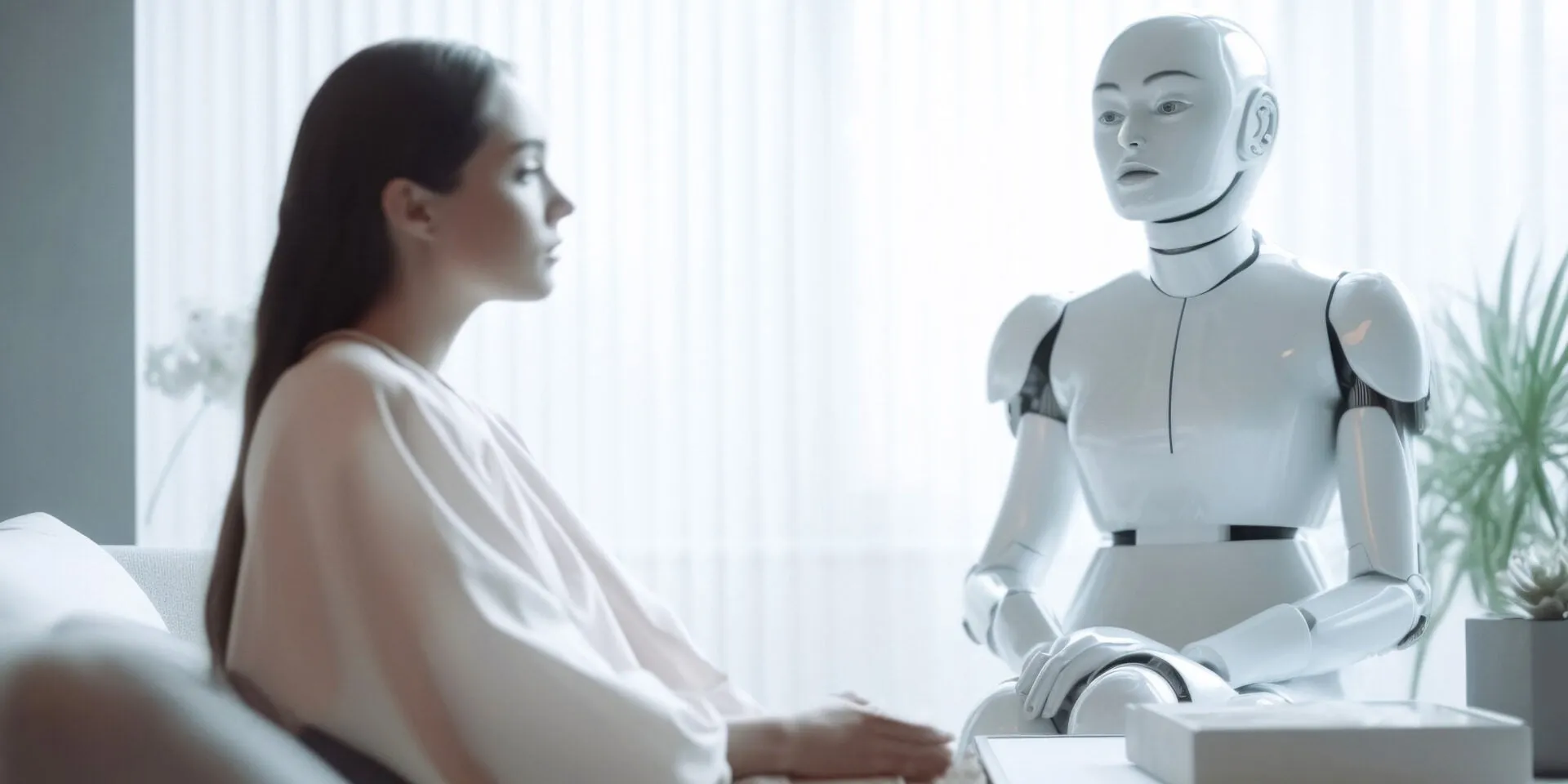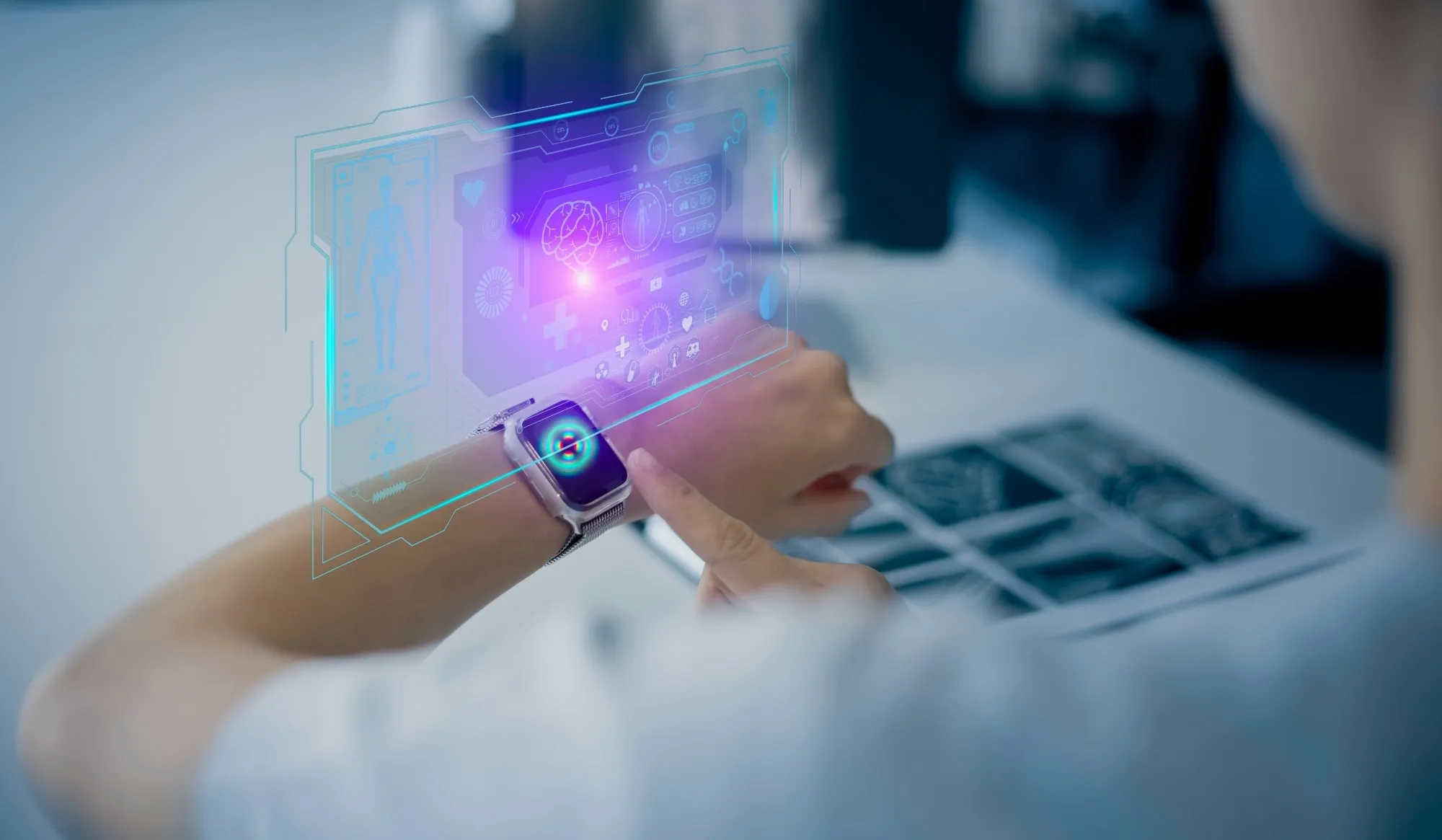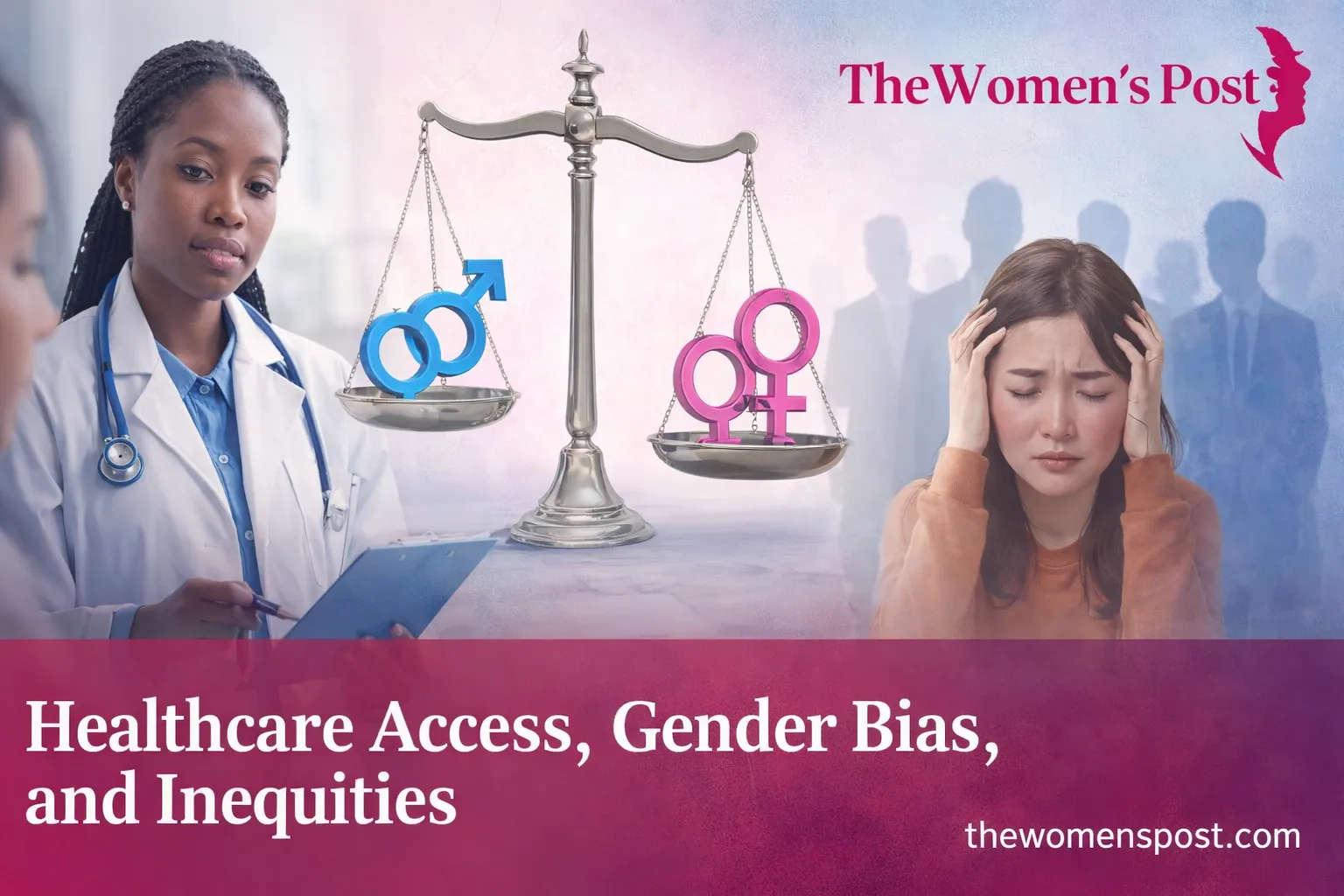Women have special mental health challenges, including postpartum depression, menopausal anxiety, and breast cancer stress. Access to traditional therapy may be difficult because of cost, time, or stigma. All this is changing with AI in healthcare. AI in healthcare is introducing new tools that make mental health care more accessible, quicker, and more tailored to women. As of 2025, AI in healthcare assists in screening, therapy, and continued care. This article discusses how AI aids women’s mental health through innovative solutions.
AI in Detection and Screening
AI in healthcare makes it simpler to detect mental health issues early on. For instance, machine learning from AI-based mental health solutions for women considers health histories in order to predict risks.
Perinatal Care and Depression Prediction
In perinatal care, or care during pregnancy and after giving birth, AI healthcare relies on information such as lab tests and previous mental health history to predict depression. This is important because approximately 20% of pregnant women in the US struggle with mental health, and it is more prevalent in minority populations.
Analyzing Social Media and Voice Patterns
AI healthcare also examines what people post on social media or what they sound like when they talk. Artificial intelligence natural language processing in mental health platforms for women scans Reddit or other posts for expressions of unhappiness. Ambient AI devices overhear conversations with physicians and mark distress based on tone of voice. These tech solutions for women’s mental illness capture issues that may fall under the radar during routine check-ups.
Wearables for Breast Cancer Patients
For breast cancer patients, AI in wearables monitors stress indicators such as heart rate fluctuation. Early intervention through the involvement of AI in women’s mental health care translates to faster assistance, better results.
AI-Powered Chatbots and Therapy Apps

Also Read: Women Leading The Way In Green Computing And Sustainable Tech Solutions In Tech Design
Chatbots are virtual friends who provide therapy at any time. Woebot and Wysa apps apply AI in health care to talk to users and share tips on coping, based on cognitive behavioral therapy. In 2025, sophisticated chatbots with big language models, such as those powered by GPT, provide more human responses. They assist in depression, anxiety, as well as crisis situations, highlighting the ways AI aids women’s mental wellness.
Tailored Support for Women
For women, these tools personalize advice to individual needs.
Perinatal Health Support
In perinatal care, AI-based chatbots in mental health care solutions for women function as virtual doulas, linking users with local support and alleviating symptoms of depression.
Breast Cancer Emotional Support
For breast cancer, chatbots recommend relaxation methods and emotional support in the absence of therapists. This benefits women in rural communities or too busy for in-office sessions, demonstrating the potential of AI in women’s mental health treatments.
Virtual Reality Integration
Apps integrate with virtual reality for more immersive therapy. VR, as part of technology-based solutions for women’s mental health, assists women to rehearse coping in safe, simulated environments, such as coping with anxiety triggers.
Tailored Support for Women’s Own Issues
The application of AI in women’s mental health treatment excels in treating women-specific issues.
Postpartum Depression Monitoring
In pregnancy, healthcare AI anticipates and tracks postpartum depression. Wearable technology monitors mood and sleep to detect early warnings, enabling physicians to intervene before issues escalate.
Breast Cancer Mental Health Support
For breast cancer that occurs to millions of women annually, AI-powered mental health solutions for women revolutionize support. Virtual therapists identify depression from voice variations. Telepsychiatry platforms leverage AI in medicine to remotely connect patients with specialists. Half of these women are plagued by anxiety or PTSD, and technology-based solutions for women’s mental health guarantee care is aligned with their requirements. AI processes data to notify physicians if a patient is deteriorating.
Broader Women’s Health Applications
In women’s health more broadly, AI tailors treatments for menopause or hormonal shifts. It automates workflows in clinics, allowing physicians to concentrate on care. This results in improved access and equity, particularly for vulnerable populations, highlighting how AI benefits women’s mental health.
Wearables and Continuous Monitoring

Also Read: How Women Techies Can Highlight Their Talents Beyond The Resume
Smartwatches and similar wearables are revolutionizers of AI-driven mental health solutions for women. They track heart rate, sleep, and activity to identify stress or depression.
Postpartum and Cancer Care Monitoring
For postpartum women, these technologies use AI to predict relapse and recommend interventions. For cancer treatment, they facilitate round-the-clock tracking outside hospitals.
Enhancing Treatment Adherence
This ongoing support helps women stay on track with treatment. The role of AI in women’s mental health care adapts plans based on data, making therapy more effective. It also re-engages users who drop off, boosting adherence.
Benefits and Challenges
AI healthcare has numerous advantages. It renders care accessible and affordable 24/7. It minimizes stigma by providing discreet support. Technology interventions for women’s mental health enhance quality of life and symptoms. For women, AI bridges gaps in regions with inadequate mental health professionals.
Challenges to Address
But there are concerns. AI will be biased if trained using bad data and produce unjust outcomes for women in the minority. There is a huge issue of privacy, as breaches could occur. Others fear that AI may provide misleading advice or replace therapists completely. Laws are playing catch-up, but more needs to be done for safety for AI-based mental health care among women.
Hybrid Models for Best Results
Experts advise the use of AI in the mental health treatment of women should complement, not replace, human therapy. Hybrid models, blending AI and therapists, are the way to go.
Looking Ahead
AI is making significant contributions to the way AI assists women’s mental health. From initial screening to individualized apps, technology solutions for women’s mental health provide hope for improved lives. As technology expands, it may reach even more women. But the responsible use is critical to make it safe and equitable. Ultimately, AI in medicine empowers women to be in control of their mental health.










